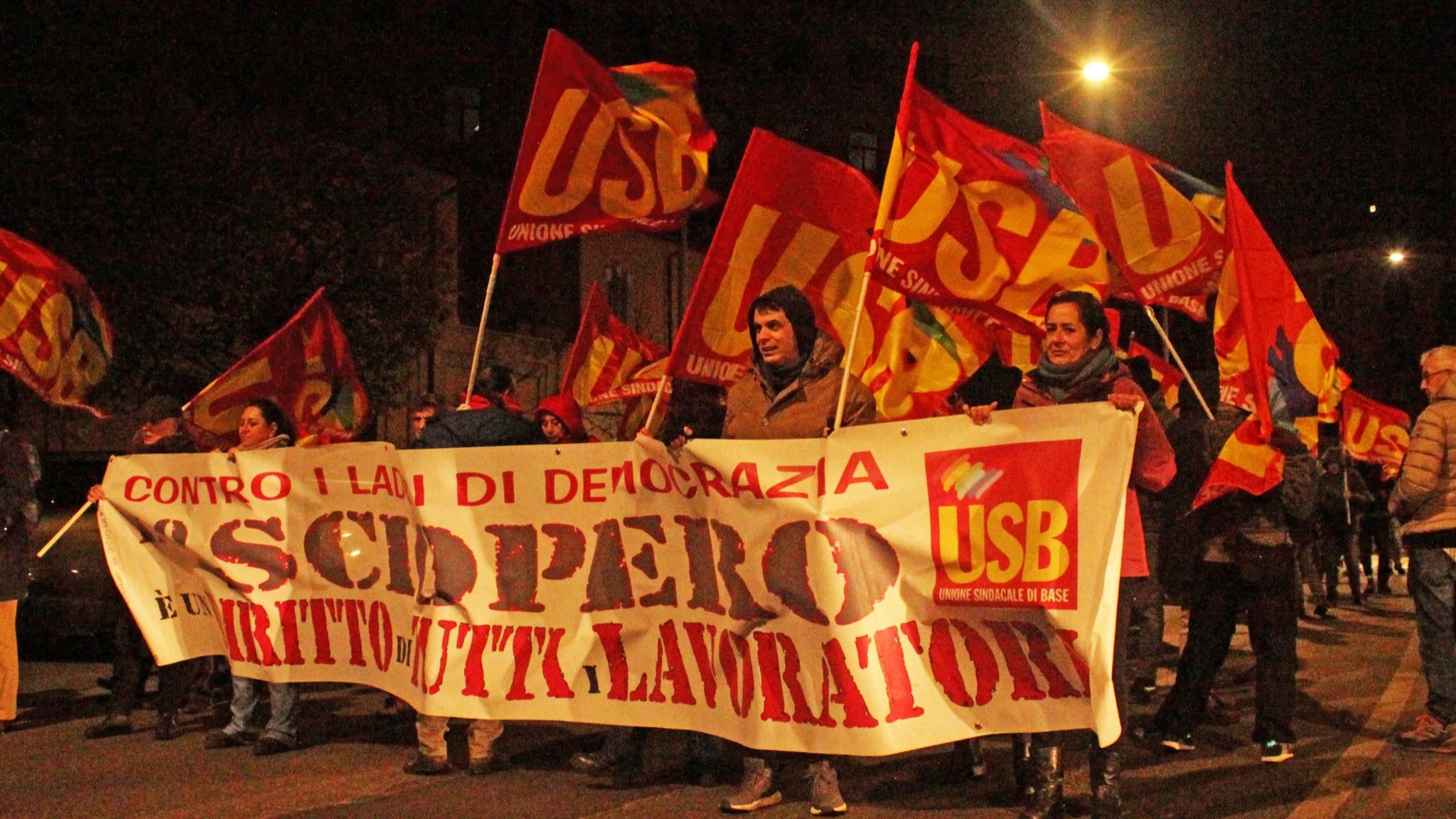Trade unions and left-wing groups in Italy are organizing to resist recent attempts by deputy prime minister and transport minister Matteo Salvini to break strikes and workers’ protests. Workers in the transport sector in the local bus, subway, and tram services joined 24-hour strikes in major cities of the country on December 15.
Trade unions and left-wing groups like the Communist Youth Front (FGC) also organized demonstrations in various cities protesting Salvini’s attack on workers’ rights. Protesters are also calling out the apathy of the far-right government led by Giorgia Meloni towards workers’ demands for a wage hike.
In the past one month or so, Salvini has issued several decrees to cut short 24-hour strikes to just 4 hours, in a blatant challenge to the country’s trade unions and workers’ rights.
The first such decree was to break a general strike called by the Italian General Confederation of Labor (CGIL) and Italian Labor Union (UIL) across different sectors like transport, education, and health on November 17.
The latest episode was a strike in the transport sector called by trade unions like Unione Sindacale di Base (USB) and its affiliate, Si Cobas, on November 27 which was postponed to December 15.
In a statement released on December 18, Potere al Popolo (PaP) argued that “in the last 30 years, Italy has been the only OECD country where wages have not only not increased, but have actually decreased (2.9%).”
PaP also highlighted the fact that as many as 5 million workers earn less than EUR 10 (USD 10) per hour and that with the rising inflation real wages have collapsed by 7.5% in the first three months of this year.
“If this is the picture of the country, the priority in the interest of the majority…is to raise salaries; not to ban or limit the right to strike,” the PaP argued. “Marching in the opposite direction, however, Salvini shows the face of the fiercely anti-worker far-right government.”
Read also: Giorgia Meloni government is a regime of private corporations that is normalizing fascism
The Italian working class was hit hard by the COVID-19 pandemic and the economic fallout. Workers have been organizing vibrant struggles for the past three years demanding an increase in wages to combat inflation and protesting the attack on workers, worker’s rights, and trade unions.
Meanwhile, former prime minister Mario Draghi and the Meloni government have joined hands to continue their austerity-ridden anti-worker policies. Some of these include cutting social welfare schemes to low-income households and aiding imperialist wars.
Italian trade unions have also been actively involved in protests against Italy’s involvement in the war in Ukraine and Palestine.
On December 15, the Communist Youth Front (FGC) stated “We don’t give in to Salvini’s dictatorial arrogance. The systematic attack on the right to strike has been carried out by the government for months.”
The statement argued that this, along with a barrage of anti-worker propaganda and prejudices against workers’ movements, “form part of a more comprehensive attempt to advance anti-people policies, disarming to the root any possible form of real opposition.”
“We went to the square, together with hundreds of other workers, to reiterate that if Salvini and the government think they can dismantle a right gained through decades of struggles and the sacrifices of thousands of exploited people without anyone opposing them, they are very wrong. The right to strike is not touched!” added the FGC.
As working-class sections across Europe intensified the struggles against austerity, the cost of living crisis, and the attack on rights, governments in Greece, the UK, and Belgium resorted to implementing anti-worker legislation to thwart workers’ right to strike and protests.





